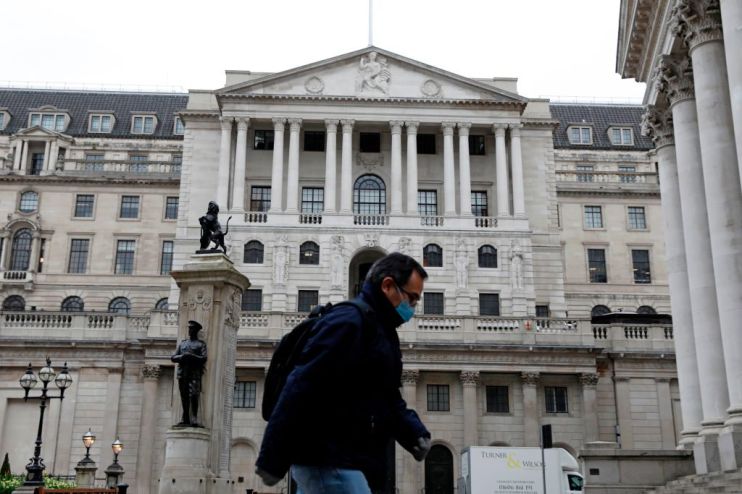Bank of England policymaker: UK economy in worst slump ‘in centuries’

The UK economy is experiencing the fastest and deepest contraction in “the past century or possibly several centuries” during the coronavirus lockdown, a Bank of England rate-setter has said.
However, Bank monetary policy committee (MPC) member Gertjan Vlieghe, also said that “in principle” the economy “should return approximately to the pre-virus trajectory” if it is given the right support.
Vlieghe also defended the Bank against accusations that it was funding government spending in a way that could drive up inflation. He said the Bank is not acting like “the Weimar Republic or Zimbabwe,” which suffered hyperinflation.
The MPC member’s comments came as data showed the UK economy suffered an unprecedented blow in April, with activity in the enormous services sector plunging.
The UK’s budget watchdog said last week that British GDP could contract by 35 per cent in the second quarter. Bank of England governor Andrew Bailey and deputy governor Ben Broadbent have both said such a drop is well within the realms of possibility.
However, Bailey said he could not endorse the Office for Budget Responsibility’s scenario in which the economy quickly bounced back. He suggested there could be some “scarring”.
Vlieghe, one of the Bank’s external MPC members, today said made the BoE’s starkest statement yet that the economy is imploding.
“It seems that we are experiencing an economic contraction that is faster and deeper than anything we have seen in the past century, or possibly several centuries,” he said.
Vlieghe said things would be worse had the government and Bank of England not used unprecedented firepower in tackling the economic effects of the virus.
He said Bank policies such as slashing interest rates and ramping up bond-buying “are all working in the same direction of preventing an unwarranted tightening in financial conditions that would, if left unaddressed, lead to an even sharper economic downturn”.
Economy should bounce back
Vlieghe struck a more positive tone than many of his fellow economists, saying the UK’s productive potential should recover once the virus has passed.
“Once the pandemic is over, and other things equal, in principle it should return approximately to the pre-virus trajectory,” he said.
“The current priority for monetary policy, with a lot of help from fiscal policy, is to return the economy to that pre-virus trajectory as soon as possible.”
Bank is not doing ‘monetary financing’
He also batted away suggestions that the Bank is engaging in “monetary financing,” printing money on a permanent basis to fund government spending.
He said the BoE is not acting like “the central bank of the Weimar Republic or Zimbabwe” because the government was not “telling the central bank what to do, implicitly or explicitly, in order to achieve fiscal objective”.
“Central banks use their balance sheets to achieve monetary policy objectives. In doing so, they affect government finances,” he said.
“That has always been the case, and that continues to be the case. This in no way detracts from the central bank’s independence and its ability to hit the inflation target.”